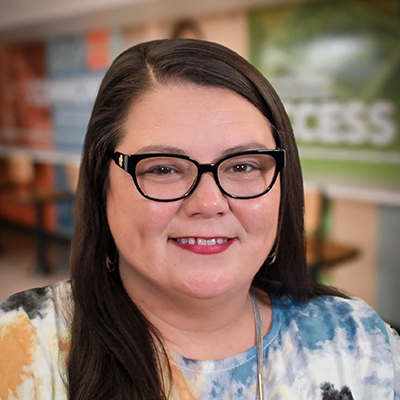
Workshop Topic Detail
Trauma-Informed Teaching and Learning
This workshop introduces participants to the concept of trauma and resilience and allows them to explore their own experiences to provide a better sense of relatability. Learning these key principles can enhance wellbeing and is applicable to everyone. The process of learning can never occur without developing meaningful relationships. During the workshop, participants have the opportunity to learn more about themselves and the students they serve by assessing and understanding their own underlying trauma and vulnerabilities with a series of intentional activities and exercises. By evaluating and analyzing our own adverse childhood experiences, we are able to better empathize with those around us. By breaking down the wall between us and the individuals we work with, we can help them overcome barriers that may be standing in the way of them reaching their full potential. Recognizing this allows for better relationships, increased cognition, and enhanced learning transfer. Participants will be surprised by what they learn about themselves and, therefore, want to play an integral role in promoting resilience and advocating for trauma-informed practices within their organizations on the teaching side, as well as on the learning side.
By the end of this workshop, participants know or will be able to:
- Recognize the concept of Adverse Childhood Experiences (ACEs) and how it differs across various populations.
- Describe and evaluate how ACEs impact brain function, human growth, and development.
- Assess and apply knowledge regarding posttraumatic growth by examining research-based tools and techniques to manage and improve trauma and promote resilience.
- Recognize that trauma is a huge public health issue and understand how it impacts us globally.Identify how to create trauma-informed practices inside the classroom.Identify ways in which to develop trauma-responsive organizations.
Plans for Audience Participation and Interaction:
Welcome icebreaker. ACEs test. Introduction of trauma and resilience training breakout sessions. Grounding. Whole group share out exit ticket.Meditation: By the Lake.
Facilitator(s)

Melissa Robbins, dean, business studies and emerging technologies at Piedmont Community College, is a lifelong, passionate educator. Growing up in a small town in southside Virginia, Melissa always knew she wanted to become a teacher in some form or fashion. She was lucky enough to have attended a high school that partnered with the local community college to provide dual enrollment courses to qualified students. Melissa immediately signed up and the rest was history! She received her early childhood education certificate from Southside Virginia Community College along with two associate degrees from the same institution. She went on to pursue a bachelor's degree in occupational and technical education from Old Dominion University, minoring in IT with a cluster in counseling. Melissa earned a master’s degree in business management and leadership from Liberty University. Melissa has more than 22 years of classroom experience in the PK-12 school system and the higher education sector. She has worked for community colleges and at the university level. Educating others is where she finds joy, and her students are at the center of everything she does. Whether it’s finding an interactive and engaging learning tool for the classroom or implementing experiential learning activities at her institution, Melissa always ensures students come first. Her motto is, “If no relationship is ever built, no learning can ever occur.”

